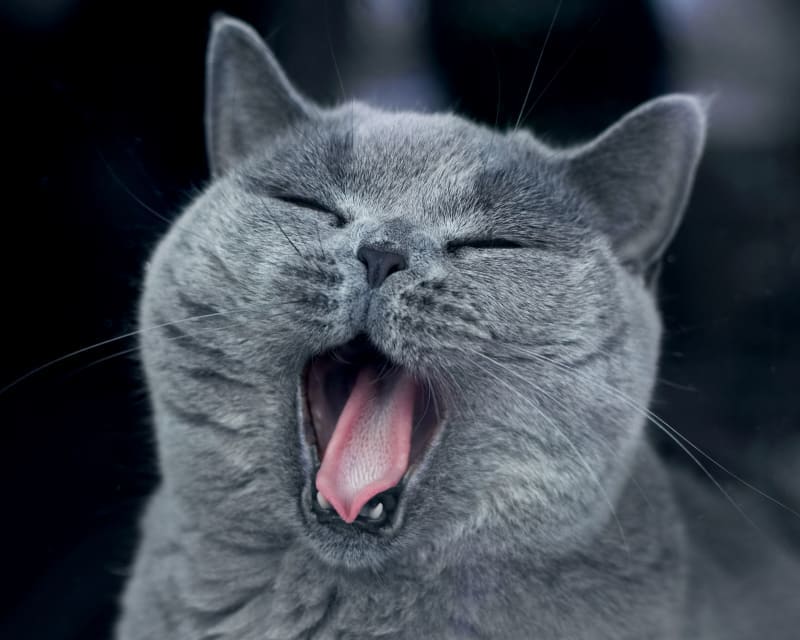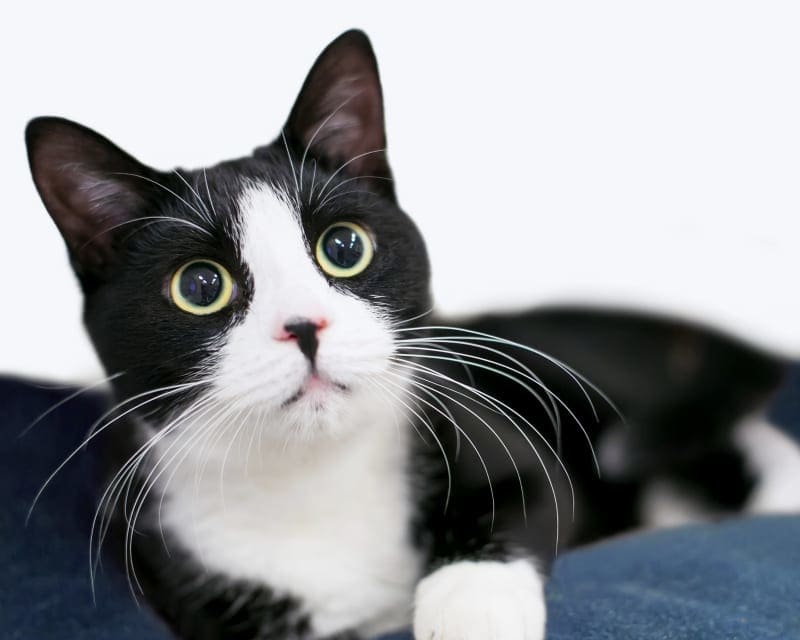Feline Hyperthyroid Therapy in Plains, PA
Northeast Veterinary Referral Hospital offers I-131 Radioactive Iodine Therapy for cats who experience issues with hyperthyroidism in Plains and the surrounding areas.

Hyperthyroidism Treatment for Cats in Plains, PA
Radioactive Iodine (or radioiodine) I-131 therapy has been used extensively in veterinary medicine and has a success rate approaching 95-98% for hyperthyroid cats with only one treatment.
The radioactive iodine is absorbed into the abnormal thyroid tissue, leaving nearby normal thyroid tissue and other organs undamaged. Your cat’s normal thyroid tissue will resume functioning after the benign tumor is gone, usually within a month of therapy.
FAQs About I-131 Therapy for Hyperthyroid Cats
- How does hyperthyroidism affect cats?
Hyperthyroidism is a very common endocrine disease seen in older cats. It causes an increased metabolic rate, which in turn causes a variety of signs including weight loss, vomiting, diarrhea, rapid or irregular heart rate, increased blood pressure or other problems.
- What are the treatment options for hyperthyroidism?
The three primary options for treatment of hyperthyroidism include surgical removal of the affected thyroid gland, medical therapy with Tapazole (methimazole), or radioiodine therapy.
Complications associated with surgery include anesthetic risks and damage to the parathyroid gland primarily, as well as risk of recurrence.
Among other reasons, Tapazole (methimazole) therapy can cause vomiting, skin rash, as well as liver and bone marrow problems.
In addition to daily pilling, close monitoring of blood work is essential with Tapazole therapy and can incur annual costs.
In rare cases (<5%), some cats may require a second treatment or develop hypothyroidism (under-active thyroid gland) that requires daily thyroid hormone supplementation. - Is Radioiodine Therapy (I-131) comparable to Methimazole?
Every patient is different, and there is no way to determine whether one treatment will work better than another, here are some of the facts regarding both radioiodine therapy (I-131) and methimazole for hyperthyroidism in cats.
Medical expenses can add up quickly, thankfully I-131 treatment is done in a single injection creating a one-time expense, unlike methimazole which is an ongoing treatment, and frequent monitoring which involves lifelong medical expenses.
One of the most concerning things for pet owners is the possible side effects that medication can have on our pets. With I-131 side effects are incredibly rare, however with methimazole side effects are fairly common and cats have been known to develop hypothyroidism.
I-131 treatment has been shown to destroy thyroid tumors including invasive and metastatic thyroid carcinoma, resolve renal hypertension and proteinuria, as well as stop the progression of renal disease associated with hyperthyroidism. With methimazole thyroid tumors can still metastasize, and renal hypertension, glomerular hypertension, and proteinuria can persist.
I-131 therapy has the highest survival rate, whereas methimazole actually has the shortest survival rate.
- Why does my cat have to remain hospitalized for so long after treatment?
Because the radioactive material remains in the cat’s body and is excreted primarily through the urine and feces, your cat is required to remain in our facility until their radiation levels are considered low enough for them to go home.
The standard hospital stay is about 5 days, though some cases may require an extended stay. While hospitalized, your cat will be monitored daily by our trained staff as well as their veterinarian. Medications will be administered as required, and we encourage you to bring a week’s supply of your kitty's favorite food.
Unfortunately, no personal effects can be returned so we suggest not leaving any cat toys or bedding (we will provide these).
Also, we cannot allow visitation until your cat is ready for discharge, but we will give you daily progress reports on your cat.
- What is required following discharge from the hospital?
For two weeks following discharge, we request that you follow some sensible safety measures while any remaining radiation is excreted from your cat’s body.
You will receive detailed written instructions that include limiting extensive contact (especially with children or pregnant women), washing hands after handling your cat or his/her litter box, and disposing of litter box waste. Your cat will also need to remain indoors during that time.
- Will my cat experience radiation sickness?
The treatment is given via a subcutaneous injection, similar to a vaccination. They do not experience radiation sickness. Radioactive iodine is a very safe and effective treatment and is used frequently in human medicine.
- How do I schedule an appointment for I-131 for my cat?
Please talk with your veterinarian about your cat’s case and whether he or she is an appropriate candidate for I-131. Northeast Veterinary Referral Hospital is a referral-based hospital, which means we work closely with your veterinarian to provide the best possible care for your cat. We prefer a referral from your veterinarian before we see your cat for evaluation or treatment.

From Happy Pet Owners
-
The veterinarian and the techs are wonderful, knowledgeable, attentive, caring, and compassionate. They have saved the lives of two of my pets, and gently helped me through the loss of another.
